Music
Trailers
DailyVideos
India
Pakistan
Afghanistan
Bangladesh
Srilanka
Nepal
Thailand
Iraq
Iran
Russia
Brazil
StockMarket
Business
CryptoCurrency
Technology
Startup
Trending Videos
Coupons
Football
Search
Download App in Playstore
Download App
Best Collections
Technology
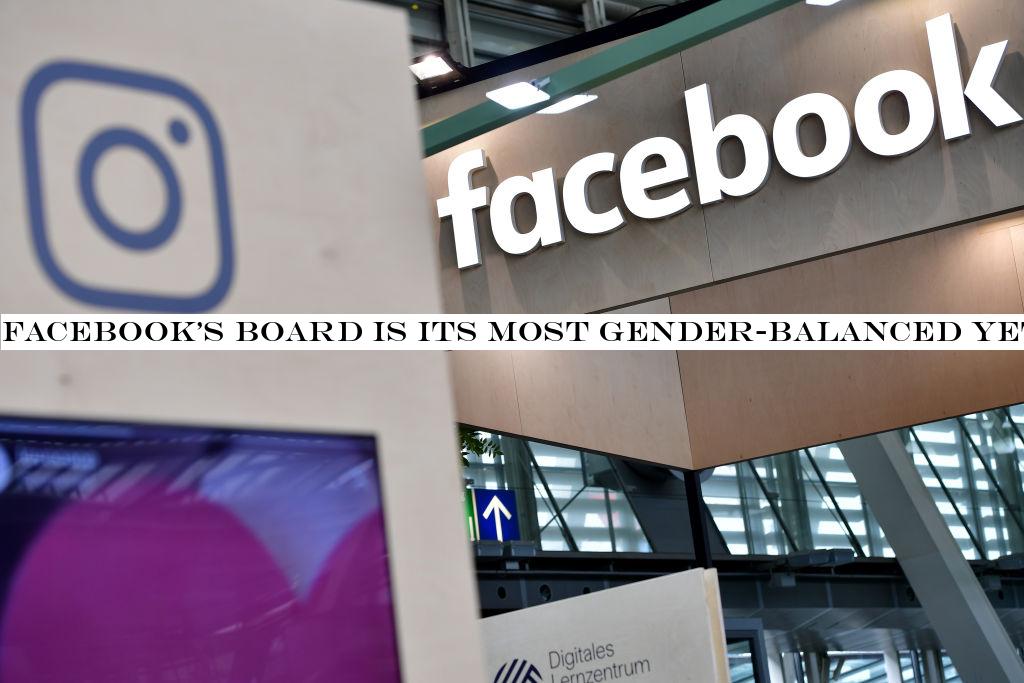
On Monday, Facebook announced the addition of two new names to its board of directors, Nancy Killefer and Tracey T. Travis.
Killefer brings potentially valuable government insight to Facebook, as she served in the U.S. Department of the Treasury during the Obama administration. With last yeardeparture of former Clinton administration chief of staff Erskine Bowles, Facebookboard lost one of its voices with deep government experience.
In addition to her time in the treasury, Killefer held various leadership roles at global consulting firm McKinsey - Company over 30 years and currently serves on the board of Cardinal Health. She previously held a board seat with Avon.
&I&m excited to join the board of Facebook, a company that is at the center of the biggest debates about technology and society,& Killefer said in the investor press release. &The next few years are likely to shape the internet for generations to come and I hope to contribute to Facebookefforts to be a responsible force for good in the world.&
Travis, Facebookother board pick, joins from Estée Lauder, where she currently serves as EVP and CFO for the cosmetics company. While Killefer brings public sector experience, Travis offers a &strong finance and corporate leadership background,& per Zuckerberg, and plenty of consumer and retail finance experience from roles with Ralph Lauren, Limited Brands, Inc., Pepsi and General Motors. In a press release, Travis expressed optimism about Facebook and the &power of technology and innovation to change our world for the better.&
Facebook lost three board members last year, first Bowles and Netflix CEO Reed Hastings, known to clash openly with Zuckerberg, and later Dr. Susan Desmond-Hellmann, former CEO of the Bill - Melinda Gates Foundation. Last month, Facebook added Mark Zuckerbergclose personal friend, Dropbox CEO Drew Houston to its board. This monthadditions fill in the remaining gaps.
Facebookboard now consists of Zuckerberg, PayPalPeggy Alford, Marc L. Andreessen of Andreessen Horowitz, General CatalystKenneth I. Chenault, DropboxHouston, Founders FundPeter Thiel, Cranamere GroupJeff Zients, Facebook COO Sheryl Sandberg and the two new names. With the addition of Killefer and Travis, the board is at its most gender-balanced yet, with four women and six men filling the seats.
In recent years, Facebook has faced multiple outside proposals from shareholders to remove Zuckerberg from his chairman position, but his board has historically held fast. Itunlikely that the company has brought anyone on particularly willing to rock the boat, but we&ll be following the new dynamics as the companylatest board members settle in.
- Details
- Category: Technology Today
Read more: Facebook’s board is its most gender-balanced yet with two new additions
Write comment (100 Comments)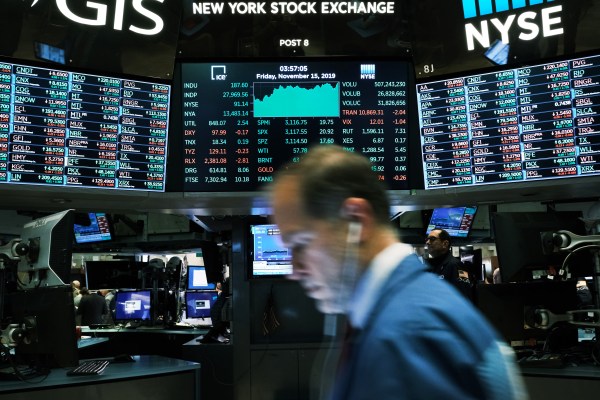
At least itover.
The markets endured their worst day of trading of this young year as the Dow Jones Industrial Average dropped 2,000 points to close at 23,850.79— a 7.79% decline. The Nasdaq Composite Index fell 624.94, to close at 7,950.68, and losses to the S-P 500 triggered a temporary halt on trading in the early morning hours. The S-P itself closed down 225.81 at 2,746.56, a 7.6% loss on the day.
Stocks were set up for a fall on Monday as every major financial indicator turned south.
Oil was down over a scuttled OPEC deal which will now mean that Russia and Saudi Arabia will flood the global oil market with cheap crude. The price war pushed the price of crude down to roughly $30 per barrel.
Meanwhile, markets are still trying to absorb all of the latest news around the spread of COVID-19, the disease caused by severe acute respiratory syndrome coronavirus 2. The disease continues to spread in the U.S., with 607 total confirmed cases so far, according to data compiled by Johns Hopkins University. Schools are closing, businesses are encouraging their employees to work remotely if they can and nearly everyone is canceling non-essential business travel.
Hits to oil and gas companies and airplane manufacturers were always going to weigh heavily on the Dow. And now therean open discussion in the halls of the U.S. government about the possibility for industry bailouts.
That kind of talk doesn&t bode well for the overall health of the U.S. economy, nor do fears over large hits to the nationservices sector.
And the Federal Reserve has basically flipped all of the switches it possibly can to keep the U.S. economy humming, driving interest rates down to near zero in an effort to encourage investment in the stock market.
None of this seems to be helping, yet. And startups have as much to fear from a market contraction as the rest of the world. Less money flowing in financial markets reflects fewer dollars getting spent in the real world — and more cautious decision-making around how to spend the money a company has.
- Details
- Category: Technology Today
Read more: Wall Street’s terrible, horrible, no good, very bad day ends with the Dow down 2,000
Write comment (94 Comments)
Cadillac has cancelled the upcoming debut of the Lyriq, an all-electric mid-sized SUV designed to be an entry point into luxury brandnew EV lineup, over concerns about the COVID-19 outbreak.
GMluxury brand had planned to reveal the Lyriq on April 2 at an event in Los Angeles.
COVID-19, a disease caused by a new virus that is a member of the coronavirus family and a close cousin to the SARS and MERS viruses that have caused outbreaks in the past, has caused governments and companies to cancel tech, business and automotive events around the world. The Geneva International Motor Show was cancelled, as well as MWC in Barcelona and the SXSW festival in Austin, Texas.
The GM brand said in a statement that the event was being cancelled &out of an abundance of caution.&
Herethe statement from Cadillac:
As you are aware, the situation in relation to the COVID-19 (novel coronavirus) outbreak in the U.S. continues to develop.Now, several states have declared a State of Emergency and the number of cases continues to climb.
Out of an abundance of caution, we have made the difficult decision to cancel the Cadillac LYRIQ reveal in Los Angeles, California on April 2nd. We are currently evaluating future plans and will be touch soon with an update. Our top priority is the safety of our media guests and employees. We have been working with GM Medical and Security to monitor the situation closely and have been following recommendations for the U.S. Centers for Disease Control and the World Health Organization.
The Lyriq is just one in a roster of electric vehicles that GM plans to bring to market in the next two years. The automaker revealed March 4 a sweeping plan to produce and sell EVs that hinges on a new electric architecture that will support a wide range of products across all of its brands, including Buick, Cadillac, Chevrolet and GMC. The EV portfolio will include everything from compact cars and work trucks to large premium SUVs and performance vehicles.
This modular architecture, called &Ultium,& will be capable of 19 different battery and drive unit configurations, 400-volt and 800-volt packs with storage ranging from 50 kWh to 200 kWh, and front-, rear- and all-wheel drive configurations.
The Cruise Origin, a self-driving, electric shared vehicle that was shown in January, was the first product under this new EV strategy to be revealed to the public. The reveal of Cadillac Lyriq SUV was supposed to come next, followed by the GMC Hummer EV on May 20.The Hummer event has not been cancelled.
- Details
- Category: Technology Today
Read more: Cadillac cancels debut of all-electric Lyriq over COVID-19 concerns
Write comment (96 Comments)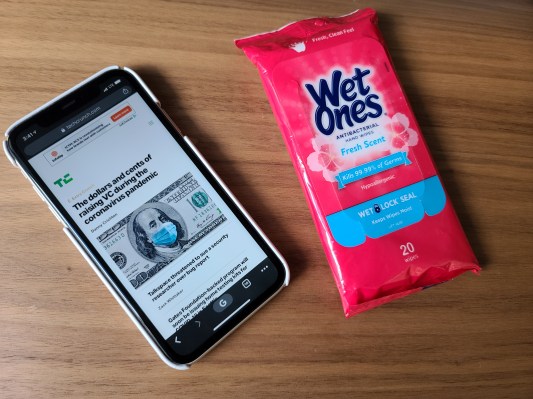
A small consolation in the growing COVID-19 crisis is that some of our moderate germophobia has begun to feel like a minor super power. As I got settled for a cross-country flight last week, I took out my hand wipes and did a whole number on the screen, tray table and arm rests, and this time no one looked at me funny.
I go to a lot of conferences and trade shows and have to shake a lot of hands (though I&ve taken to the elbow bash in recent weeks) before handling my phone. Years ago, I switched from Purell bottles to hand wipes for two reasons:
- Hand sanitizer feels like lacquering the dirt on. This is probably another weird quirk, so do with that what you will.
- I touch my phone — and computer — a lot. I almost never leave the house without a product like Wet Ones in my bag. Hell, I included them in a travel gift guide last year. Merry Christmas, Billy, herethe packet of antibacterial wipes you wanted but were too afraid to ask.
For those concerned about damage to your devices, fear not. Apple, which has never been prone to recklessness for such things, just gave disinfecting wipes a green light on its &How to clean your Apple products& that covers Mac, iPad, iPhone and iPod, among others.
Using a 70 percent isopropyl alcohol wipe or Clorox Disinfecting Wipes, you may gently wipe the hard, nonporous surfaces of your Apple product, such as the display, keyboard, or other exterior surfaces. Don&t use bleach. Avoid getting moisture in any opening, and don&t submerge your Apple product in any cleaning agents. Don&t use on fabric or leather surfaces.
iPhones these days sport IP67 or IP68 ratings. If it detects moisture in the Lightning port, it will throw up a &Charging not Available& warning. Itbest to avoid getting the port wet if you can, but thata nice fall back.
So, wipe, wipe away. Assuming, of course, you can still find them.
- Details
- Category: Technology Today
Read more: Wait, you all haven’t been wiping down your smartphones this whole time
Write comment (100 Comments)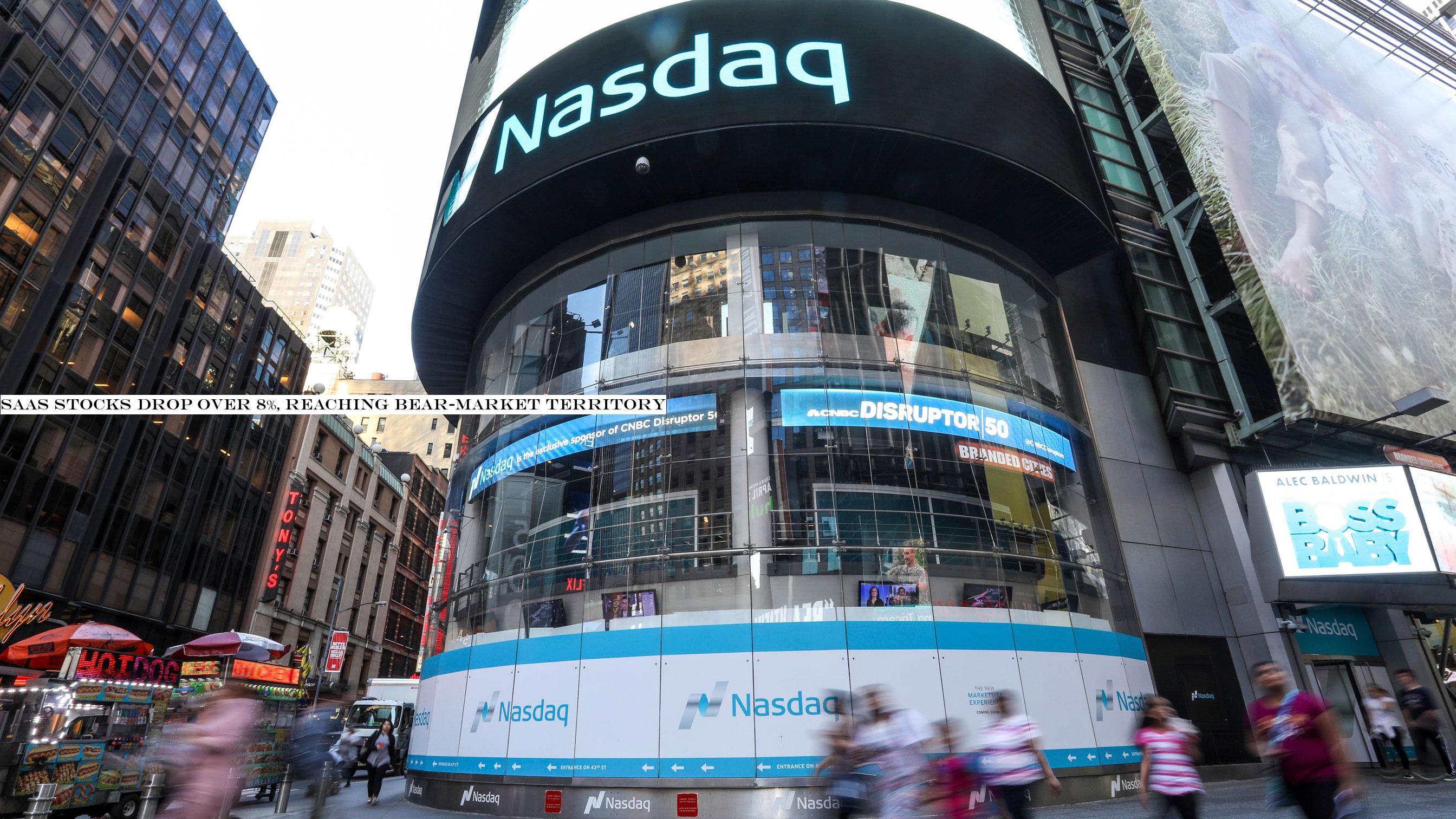
Today was an awful day for the stock market, with global and domestic equities falling sharply as the world digested a collapse in oil prices, and yet another weekend of the spread of COVID-19. All major U.S. indices were down, with the tech-heavy Nasdaq falling the least of the three, slipping a comparatively modest 7.29%, to 7,950.68 on the day.
However, while the tech index didn&t fare as poorly as other American indices, a critical portion of the technology market actually fell further than the Dow Jones Industrial Average or the S-P 500: SaaS and cloud stocks, as measured by the Bessemer-Nasdaq index.
Indeed, the BVP Nasdaq Emerging Cloud Index was off 8.28% today, closing at 1,134.51. Thatthe lowest level that the index has traded at since last October. Putting the basketswings into context, the index is just 7% above its 52-week lows, but 21% off its recent highs (52-week range data via the excellent Financial Times).
That means that SaaS and cloud stocks are off the requisite 20% needed to classify as in a bear market. A correction is defined as a 10% decline from recent highs. A bear market is 20%. Other major indices arenear the bear market mark, but are still above it. They could easily reach the threshold tomorrow, but SaaS got there first.
What the hell?
It was just three days ago that SaaS stocks approached the correction threshold. Covering that marker earned me some flak on Twitter, as some folks invested in the success of SaaS read the news item as a dis of the category itself. To the contrary, really, SaaS companies are still richly valued — far above historical norms — and it seems unlikely that investors are about to price them more cheaply than other types of companies.
However, what does seem clear is that there is less short-term optimism about SaaS than there was just a few weeks ago, when, in mid-February, companies in the sector set all-time record highs on the public markets. (We&ve been covering the SaaS run for some time now.)
The carnage today was widespread, but not that bad when we take into account resulting revenue multiples. For example:
- Atlassian was off 7.87% today, but still had a price/sales multiple of over 23, per YCharts data.
- Slack was off 6.13% today, but had a price/sales multiple at the end of day of 21.24, again according to YCharts.
This doesn&t undercut the pain that public SaaS companies felt today, or the gut-drop that SaaS startups felt as they watched their leading lights get pummeled on the stock market. But SaaS highfliers are still just that, and the whole category is still expensive. So, pour one out, but just one. Another day or two like today, however, and worry becomes a bit more understandable.
- Details
- Category: Technology Today
Read more: SaaS stocks drop over 8%, reaching bear-market territory
Write comment (95 Comments)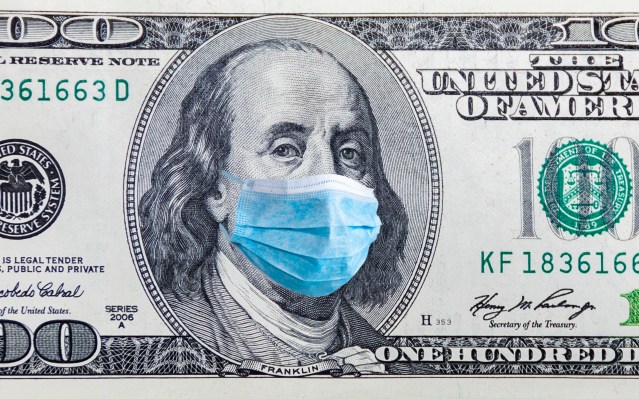
The novel coronavirus is raging across the planet. Millions are quarantined, the stock market is violently gyrating and one of the preeminent VC firms in the Valley is back to saying RIP Good Times. The daily stream of news is terrifying, and we are going to learn even more in the coming weeks.
For founders, the biggest challenge is inoculating their teams from the vagaries of the market so they can do their jobs, continue building momentum against this market adversity and, ultimately, ensure there is enough cash in the bank to avoid layoffs and sustain their company for growth.
I want to talk today about the money details, saving some of those other topics for future posts. What does VC fundraising look like today? Whatgoing to change in the VC market? What might actually get better about fundraising today than just a few months ago? The daily headlines can be traumatizing, but with the right approach, you can navigate these waters safely.
Volatility affects different VCs differently
- Details
- Category: Technology Today
Read more: The dollars and cents of raising VC during the coronavirus pandemic
Write comment (97 Comments)Page 1290 of 1446

 17
17





